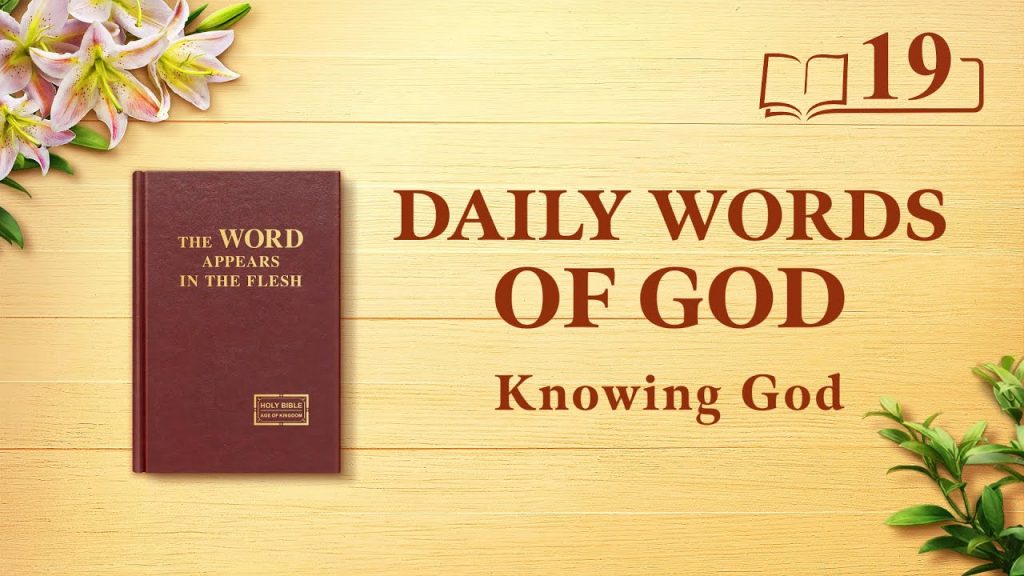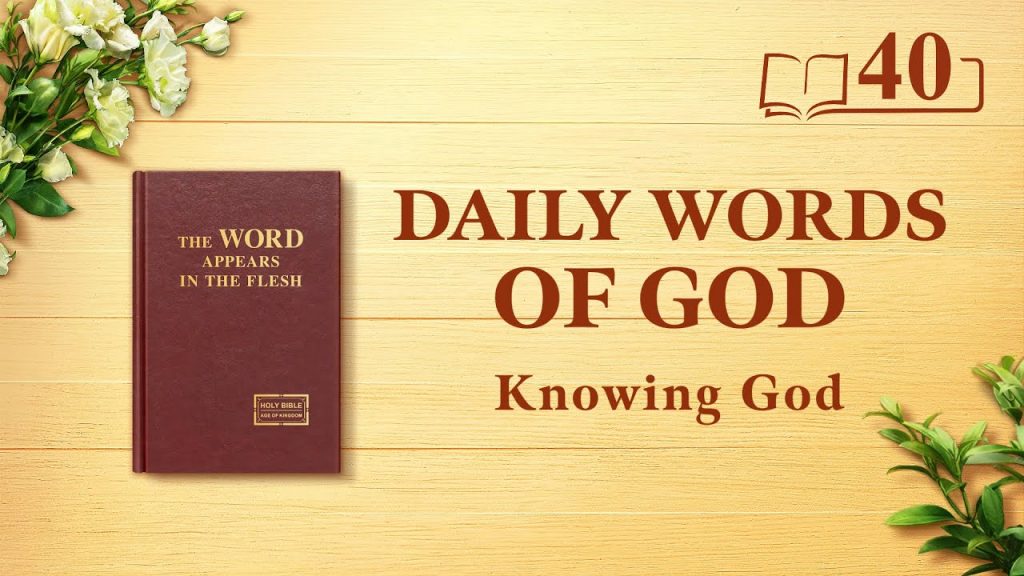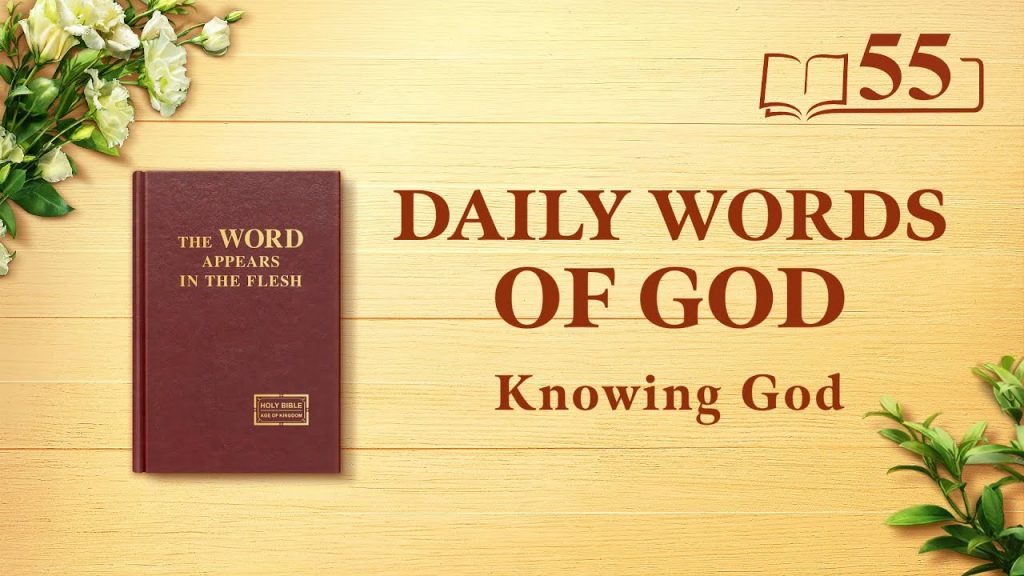Daily Words of God: Knowing God | Excerpt 54
Job Has Heard of God by the Hearing of the Ear
(Job 9:11) See, He goes by me, and I see Him not: He passes on also, but I perceive Him not.
(Job 23:8–9) Behold, I go forward, but He is not there; and backward, but I cannot perceive Him: On the left hand, where He does work, but I cannot behold Him: He hides Himself on the right hand, that I cannot see Him.
(Job 42:2–6) I know that You can do every thing, and that no thought can be withheld from You. Who is he that hides counsel without knowledge? therefore have I uttered that I understood not; things too wonderful for me, which I knew not. Hear, I beseech You, and I will speak: I will demand of You, and declare You to me. I have heard of You by the hearing of the ear: but now my eye sees You. Why I abhor myself, and repent in dust and ashes.
Although God Has Not Revealed Himself to Job, Job Believes in the Sovereignty of God
What is the thrust of these words? Have any of you realized that there is a fact here? First, how did Job know there is a God? And how did he know that the heavens and earth and all things are ruled by God? There is a passage that answers these two questions: I have heard of You by the hearing of the ear: but now my eye sees You. Why I abhor myself, and repent in dust and ashes (Job 42:5–6). From these words we learn that, rather than having seen God with his own eyes, Job had learned of God from legend. It was under these circumstances that he began to walk the path of following God, after which he confirmed the existence of God in his life, and among all things. There is an undeniable fact here—and what is it? Despite being able to follow the way of fearing God and shunning evil, Job had never seen God. In this, was he not the same as the people of today? Job had never seen God, the implication of which is that although he had heard of God, he did not know where God was, or what God was like, or what God was doing, which are subjective factors; objectively speaking, though he followed God, God had never appeared to him or spoken to him. Is this not a fact? Although God had not spoken to Job or given him any commands, Job had seen God’s existence, and beheld His sovereignty among all things and in legends in which Job had heard of God by the hearing of the ear, after which he began the life of fearing God and shunning evil. Such were the origins and process by which Job followed God. But no matter how he feared God and shunned evil, no matter how he held firm to his integrity, still God never appeared to him. Let us read this passage. He said, “See, He goes by me, and I see Him not: He passes on also, but I perceive Him not” (Job 9:11). What these words are saying is that Job might have felt God around him or he might not—but he had never been able to see God. There were times when he imagined God passing before him, or acting, or guiding man, but he had never known. God comes upon man when he isn’t expecting it; man doesn’t know when God comes upon him, or where He comes upon him, because man cannot see God, and thus, to man, God is hidden from him.
Job’s Faith in God Is Not Shaken Because God Is Hidden From Him
In the following passage of scripture, Job then says, “Behold, I go forward, but He is not there; and backward, but I cannot perceive Him: On the left hand, where He does work, but I cannot behold Him: He hides Himself on the right hand, that I cannot see Him” (Job 23:8–9). In this account, we learn that in Job’s experiences, God had been hidden to him throughout; God had not openly appeared to him, nor had He openly spoken any words to him, yet in his heart, Job was confident of God’s existence. He had always believed that God might be walking before him, or might be acting by his side, and that although he could not see God, God was next to him governing his all. Job had never seen God, but he was able to stay true to his faith, which no other person was able to do. And why couldn’t they? Because God did not speak to Job, or appear to him, and if he had not truly believed, he could not have gone on, nor could he have held fast to the way of fearing God and shunning evil. Is this not true? How do you feel when you read of Job saying these words? Do you feel that Job’s perfection and uprightness, and his righteousness before God, are true, and not an exaggeration on the part of God? Even though God treated Job the same as other people, and did not appear or speak to him, Job still held firm to his integrity, he still believed in God’s sovereignty, and, furthermore, he frequently offered burnt offerings and prayed before God as a result of his fear of offending God. In Job’s ability to fear God without having seen God, we see how much he loved positive things, and how firm and real his faith was. He did not deny the existence of God because God was hidden from him, nor did he lose his faith and forsake God because he had never seen Him. Instead, amid God’s hidden work of ruling all things, he had realized the existence of God, and felt the sovereignty and power of God. He did not give up on being upright because God was hidden, nor did he forsake the way of fearing God and shunning evil because God had never appeared to him. Job had never asked that God openly appear to him to prove His existence, for he had already beheld God’s sovereignty among all things, and he believed that he had gained the blessings and graces that others had not gained. Although God remained hidden to him, Job’s faith in God was never shaken. Thus, he harvested what none other had: God’s approval and God’s blessing.
—The Word, Vol. 2. On Knowing God. God’s Work, God’s Disposition, and God Himself II





